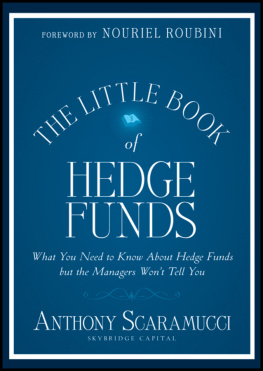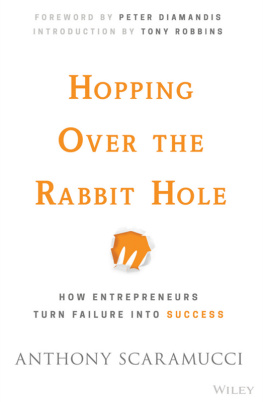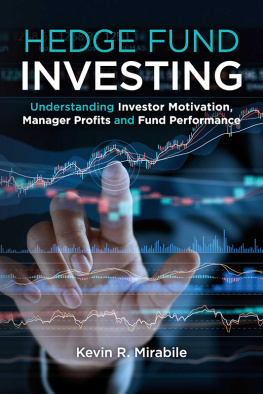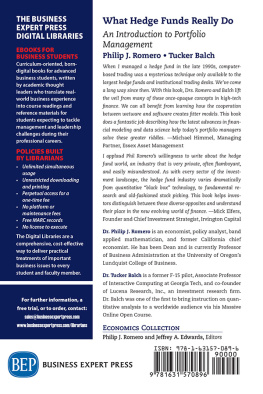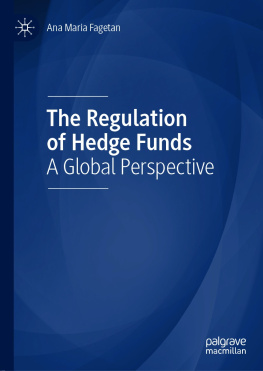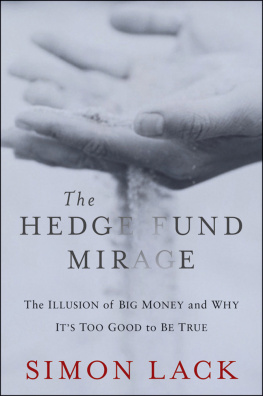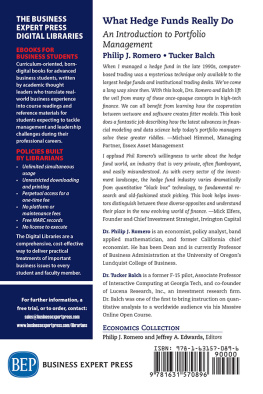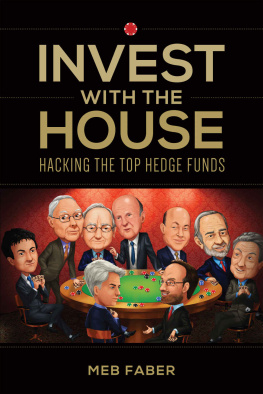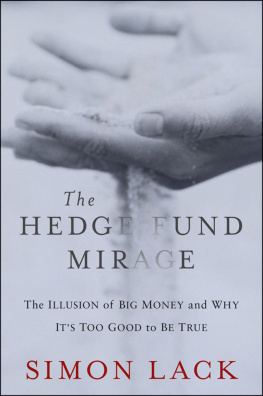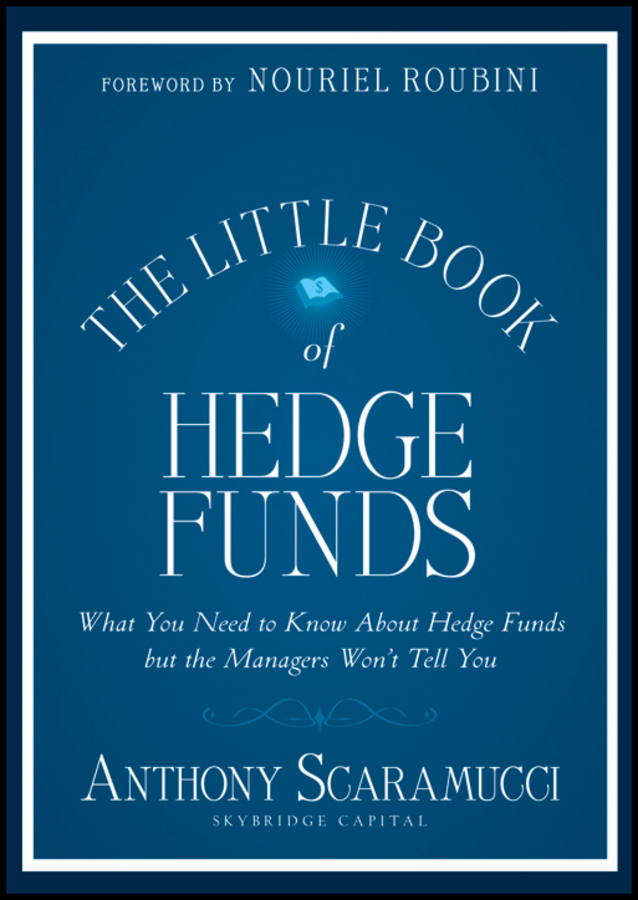Contents

Little Book Big Profits Series 
In the Little Book Big Profits series, the brightest icons in the financial world write on topics that range from tried-and-true investment strategies to tomorrows new trends. Each book offers a unique perspective on investing, allowing the reader to pick and choose from the very best in investment advice today.
Books in the Little Book Big Profits series include:
The Little Book That Still Beats the Market by Joel Greenblatt
The Little Book of Value Investing by Christopher Browne
The Little Book of Common Sense Investing by John C. Bogle
The Little Book That Makes You Rich by Louis Navellier
The Little Book That Builds Wealth by Pat Dorsey
The Little Book That Saves Your Assets by David M. Darst
The Little Book of Bull Moves by Peter D. Schiff
The Little Book of Main Street Money by Jonathan Clements
The Little Book of Safe Money by Jason Zweig
The Little Book of Behavioral Investing by James Montier
The Little Book of Big Dividends by Charles B. Carlson
The Little Book of Bulletproof Investing by Ben Stein and Phil DeMuth
The Little Book of Commodity Investing by John R. Stephenson
The Little Book of Economics by Greg Ip
The Little Book of Sideways Markets by Vitaliy N. Katsenelson
The Little Book of Currency Trading by Kathy Lien
The Little Book of Stock Market Profits by Mitch Zacks
The Little Book of Big Profits from Small Stocks by Hilary Kramer
The Little Book of Trading by Michael W. Covel
The Little Book of Alternative Investments by Ben Stein and Phil DeMuth
The Little Book of Valuation by Aswath Damodaran
The Little Book of Bulls Eye Investing by John Mauldin
The Little Book of Emerging Markets by Mark Mobius
The Little Book of Hedge Funds by Anthony Scaramucci
Copyright 2012 by Anthony Scaramucci. All rights reserved.
Published by John Wiley & Sons, Inc., Hoboken, New Jersey.
Published simultaneously in Canada.
No part of this publication may be reproduced, stored in a retrieval system, or transmitted in any form or by any means, electronic, mechanical, photocopying, recording, scanning, or otherwise, except as permitted under Section 107 or 108 of the 1976 United States Copyright Act, without either the prior written permission of the Publisher, or authorization through payment of the appropriate per-copy fee to the Copyright Clearance Center, Inc., 222 Rosewood Drive, Danvers, MA 01923, (978) 750-8400, fax (978) 646-8600, or on the Web at www.copyright.com . Requests to the Publisher for permission should be addressed to the Permissions Department, John Wiley & Sons, Inc., 111 River Street, Hoboken, NJ 07030, (201) 748-6011, fax (201) 748-6008, or online at www.wiley.com/go/permissions .
Limit of Liability/Disclaimer of Warranty: While the publisher and author have used their best efforts in preparing this book, they make no representations or warranties with respect to the accuracy or completeness of the contents of this book and specifically disclaim any implied warranties of merchantability or fitness for a particular purpose. No warranty may be created or extended by sales representatives or written sales materials. The advice and strategies contained herein may not be suitable for your situation. You should consult with a professional where appropriate. Neither the publisher nor author shall be liable for any loss of profit or any other commercial damages, including but not limited to special, incidental, consequential, or other damages.
For general information on our other products and services or for technical support, please contact our Customer Care Department within the United States at (800) 762-2974, outside the United States at (317) 572-3993 or fax (317) 572-4002.
Wiley also publishes its books in a variety of electronic formats. Some content that appears in print may not be available in electronic books. For more information about Wiley products, visit our web site at www.wiley.com .
Library of Congress Cataloging-in-Publication Data:
Scaramucci, Anthony.
The little book of hedge funds: what you need to know about hedge funds but the managers wont tell you / Anthony Scaramucci. 1
pages cm.(Little book big profits series)
ISBN 978-1-118-09967-4 (hardback); ISBN 978-1-118-23707-6 (ebk); ISBN 978-1-118-22373-4 (ebk); ISBN 978-1-118-26204-7 (ebk)
1. Hedge funds. I. Title.
HG4530.S363 2012
332.64524dc23
2012005564
To my great kids, Alexander, Amelia, and Anthony.
I am so grateful that we are a part of each others journey, and I love the three of you with all of my heart.
Foreword
In 1972 Woody Allen filmed the funny movie Everything You Always Wanted to Know about Sex But Were Afraid to Ask. It has taken 40 years, but now finally Anthony Scaramucci has written the perfect and comprehensive manual on Everything You Always Wanted to Know about Hedge Funds But Were Afraid to Ask.
Using the laymans language and a wit that at times parallels that of Woody Allens comic genius as Anthony is a man who is as funny as he is smart. He provides the perfect primer on the esoteric world of hedge funds and their investment strategies. And being an insider who knows about hedge funds as much as anyone canby running a leading fund of hedge fundsAnthony can reveal in simple but clear and still profound terms the explanation of exotic terms such as alpha, absolute returns, shorting, hedging, leverage, and two-and-twenty. It is a true insiders guide to hedge funds.
In the process he discusses many important open and controversial issues. Is there true alpha? My answer is a partial yes, as there are a number of hedge fund managers who can provide superior uncorrelated absolute returns even if many others are just mimicking beta or do not have superior investment skills. So it does take a lot of work to pick the right managers, and that is the challenging role that funds of hedge fund can and should play.
Why has the industry become so big? Because in a world of low returns on traditional investments as zero policy rates are now the norm, there is a huge demand for higher absolute returns. And, until 2008, those returns were higher than those on traditional passive or even active long-only strategies. Given the massive losses that the industry faced in 2008 and 2009, an open question is whether those higher returns were based on superior skills or rather leveraged beta. The jury is still out, but there are certainly some managers who are consistently providing alpha (if at a steep set of fees).
Why are hedge funds interesting to institutional investors? Because in a world where returns on traditional investments are low and pension funds have large unfunded liabilities, the search for the holy grail of alpha can diversify risk and provide superior returns. However, we also know that when risk is off rather than onwhen tail risk implies high risk aversionall risky assets become perfectly correlated and there is nowhere to hide, even among hedge funds. So, again, finding better managers becomes key.
Finally, what is the future of the hedge fund industry? Most likely a shake-up: thousands of smaller and under-performing funds have disappeared in the past few years while the more successful players are consolidating and becoming bigger. But then the issue remains of whether successful funds can maintain alpha returns when they become so large that they can move markets or they run out of successful trading ideas.

